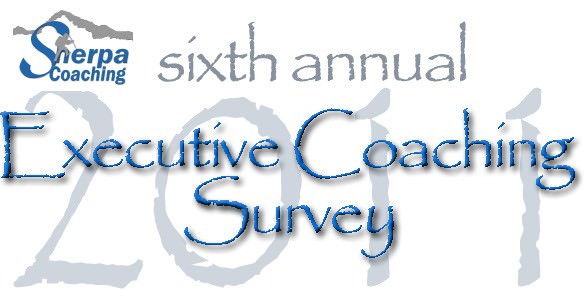
The Next Wave: Coaching Skills and Team Coaching
This year, we heard about two new trends in leadership development: team coaching and coaching skills training for managers. Based on extensive input from executive coaches who sent their comments on the state of the industry, we will start following these two topics in our 2012 report. Here’s what we know right now:
Full-time executive coaches are not the only people who are coaching. Increasingly, managers, executives and supervisors in the USA are being taught how to create coaching moments with peers and subordinates. This conclusion is backed by a recent study in the UK, which came to the same conclusion
 An executive coach in the UK had this to say: “I’m seeing the training of managers in coaching skills as the next big thing in coaching.”
An executive coach in the UK had this to say: “I’m seeing the training of managers in coaching skills as the next big thing in coaching.”
Managers will always teach and monitor the ‘skills side’ of a job. Now, they are increasingly expected to coach through behavioral issues.
A coach in Tampa, Florida (USA) says: “More advanced coaching skills – targeted at business and executive development – need to be created.”
Coaching skills teaches managers how to improve relationships in and around their business to increase profits, morale and teamwork.
Coaching isn’t exclusively one-on-one. Teams can be coached, too. In fact, we can define team coaching with a few minor revisions to our definition of executive coaching: “regular meetings between a leadership team and a trained facilitator, designed to produce enhanced performance and/or positive changes in business behavior in a limited time frame.”
The intent of coaching for a team is the same as it is with an individual: to guide the team to realizations about their behavior or performance, to enable them to make their own improvements and to make those changes sustainable over time.
 Research is underway in the UK to identify the key skills required of a team coach. Here’s what we can tell you now: This is clearly not training and it is different from consulting. The facilitator in team coaching must truly be a coach. They must deal with the situations that are brought up in the group. It is a much more intense, responsible role than that of a trainer. Team coaching is a learned skill for the facilitator.
Research is underway in the UK to identify the key skills required of a team coach. Here’s what we can tell you now: This is clearly not training and it is different from consulting. The facilitator in team coaching must truly be a coach. They must deal with the situations that are brought up in the group. It is a much more intense, responsible role than that of a trainer. Team coaching is a learned skill for the facilitator.
A coach in the UK says: “When organisations realize that they can survive all economic situations with appropriately developed employees, those organisations will then engage in coaching programmes for individuals and teams. There is a great need for team coaching.”
As team coaching becomes more common, we are bound to have the same issues we do with individual coaching. Will coaches use a published process? Will standards of practice emerge, or will team coaching be a ‘hit or miss’ proposition for many organizations? More on this topic in our 2012 report.
Download Article














